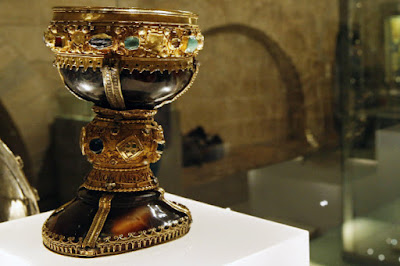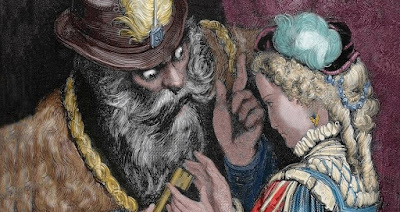Week 12 Reading Notes - King Arthur A
For our reading this week, we enter the British and Celtic tales unit. Being the descendant of Celts myself, and having spent time all around Ireland, I have particularly been awaiting this unit, but one story catches my focus above all the rest - the tales of King Arthur. My storybook sits within the canon of the Once and Future King, and my blog takes its name from it.
One fun item within this unit was the distinction of Excalibur. While this version of the story does not name the Sword in the Stone, it does distinguish it from Excalibur, which is more than most "common" retellings of the story. The tale of the reception of Excalibur, and all of the stories, practically shouts the very motif I've been imbuing into my storybook, drawn strongly from that of common British canon - the tide of destiny. Whether it is our birthright to rule all of England (as in the sword in the stone), or the expectation of repayment for Excalibur in the future, the weight of the future hangs heavy over every character in the Arthurian tales. Even Merlin prophesies a noble death for Arthur and a meek non-death for himself.
This week, I will likely tell a tale related to one of the grand quests of the Knights of the Round Table. Their journeys and accomplishments make up the bulk of the canon, and the Quest for the Holy Grail is known almost worldwide as the very archetypal heroic journey, standing next to other grand tales such as Odysseus's return to Ithaca, or the travels of Xuanzang. This half of the reading explains the beginning of the quest in a manner I'd never heard - I've always heard it begin with the Dolorous Stroke, which set all of Britain to wastes. This instead begins with a taste for the holy relic, sending Gawain as the first quester. I'm interested to see how this continues!
Bibliography: King Arthur, Untextbook
 |
| Not the Real Holy Grail |
One fun item within this unit was the distinction of Excalibur. While this version of the story does not name the Sword in the Stone, it does distinguish it from Excalibur, which is more than most "common" retellings of the story. The tale of the reception of Excalibur, and all of the stories, practically shouts the very motif I've been imbuing into my storybook, drawn strongly from that of common British canon - the tide of destiny. Whether it is our birthright to rule all of England (as in the sword in the stone), or the expectation of repayment for Excalibur in the future, the weight of the future hangs heavy over every character in the Arthurian tales. Even Merlin prophesies a noble death for Arthur and a meek non-death for himself.
This week, I will likely tell a tale related to one of the grand quests of the Knights of the Round Table. Their journeys and accomplishments make up the bulk of the canon, and the Quest for the Holy Grail is known almost worldwide as the very archetypal heroic journey, standing next to other grand tales such as Odysseus's return to Ithaca, or the travels of Xuanzang. This half of the reading explains the beginning of the quest in a manner I'd never heard - I've always heard it begin with the Dolorous Stroke, which set all of Britain to wastes. This instead begins with a taste for the holy relic, sending Gawain as the first quester. I'm interested to see how this continues!
Bibliography: King Arthur, Untextbook



Hey Gage,
ReplyDeleteI just wanted to see what you took from the Arthur reading to compare it to my takeaways. I really enjoyed the reading, and it is obvious that you liked it quite a bit as well. It is really cool that you know you descended from Celtic blood, so I bet that played a large part in why you enjoyed the story so much. Enjoy your last few weeks of the semester!
Brady